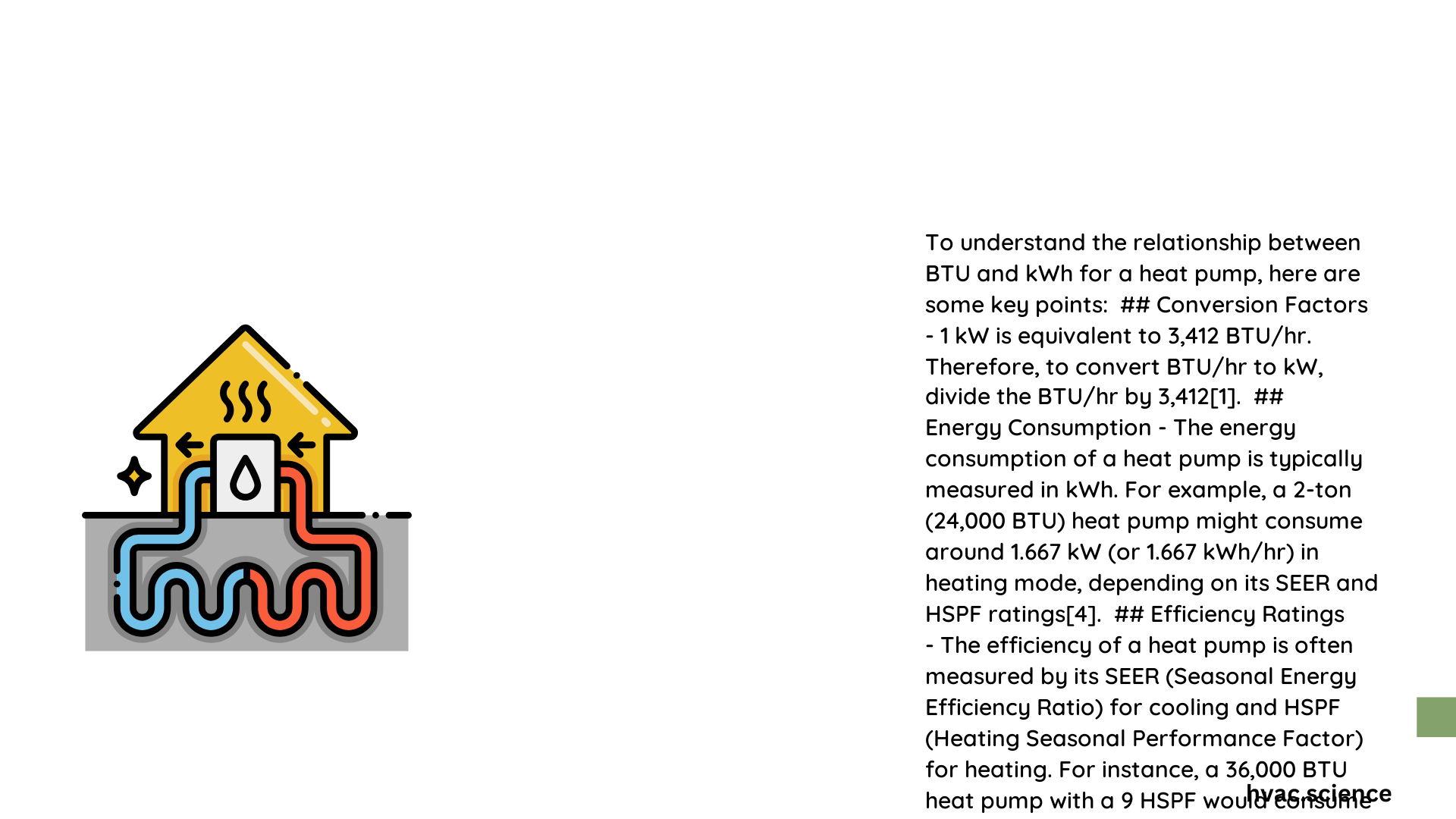Heat pumps represent a revolutionary approach to home heating and cooling, transforming electrical energy into thermal energy with remarkable efficiency. By understanding the relationship between BTU output and kilowatt-hour consumption, homeowners can make informed decisions about their heating and cooling systems, potentially reducing energy costs and environmental impact while maintaining optimal comfort levels.
What Are BTUs and How Do They Relate to Heat Pump Performance?
Understanding BTU Measurement in Heat Pumps
BTU (British Thermal Unit) represents the amount of heat energy required to raise one pound of water’s temperature by one degree Fahrenheit. In heat pump technology, BTU per kWh becomes a critical metric for evaluating system performance and efficiency.
Key Performance Metrics
- Coefficient of Performance (COP): Indicates heat pump efficiency
- Seasonal Energy Efficiency Ratio (SEER): Measures cooling performance
- Heating Seasonal Performance Factor (HSPF): Evaluates heating efficiency
| Heat Pump Type | Average BTU per kWh | Efficiency Range |
|---|---|---|
| Air-Source | 8,000 – 12,000 | 3.0 – 5.0 COP |
| Ground-Source | 10,000 – 15,000 | 4.0 – 6.0 COP |
How Many BTUs Can a Heat Pump Produce per Kilowatt-Hour?
Heat pumps can generate significantly more heat energy than the electrical energy consumed. A high-efficiency heat pump typically produces:
- 3,412 BTUs per kilowatt-hour at baseline performance
- Up to 17,060 BTUs per kilowatt-hour with advanced technology
- Varies based on:
- Ambient temperature
- System design
- Refrigerant type
- Compressor efficiency
What Factors Influence Heat Pump BTU per kWh?
Several critical factors impact a heat pump’s ability to convert electrical energy into thermal energy:
Temperature Considerations
- Outdoor air temperature
- Ground temperature (for geothermal systems)
- Indoor heating/cooling requirements
System Design Elements
- Compressor technology
- Refrigerant quality
- Heat exchanger efficiency
- Insulation capabilities
Calculating Real-World Heat Pump Efficiency
To determine actual BTU per kWh performance:
BTU per kWh = (System COP × 3,412) ÷ Electrical Input
Example Calculation:
– COP of 4.0
– Electrical Input: 1 kWh
– BTU Output: 4.0 × 3,412 = 13,648 BTUs
Practical Implications for Homeowners
Energy Cost Savings
- Higher BTU per kWh ratio translates to lower operational expenses
- Modern heat pumps can reduce heating costs by 50-70%
Environmental Benefits
- Reduced carbon emissions
- Lower electricity consumption
- Sustainable heating/cooling solution
Recommendations for Optimal Performance
- Choose heat pumps with HSPF ratings above 8.0
- Ensure proper system sizing
- Maintain regular professional maintenance
- Consider supplemental insulation
- Implement smart thermostat controls
Conclusion

Understanding heat pump BTU per kWh empowers homeowners to make energy-efficient choices, balancing comfort, cost, and environmental responsibility.
